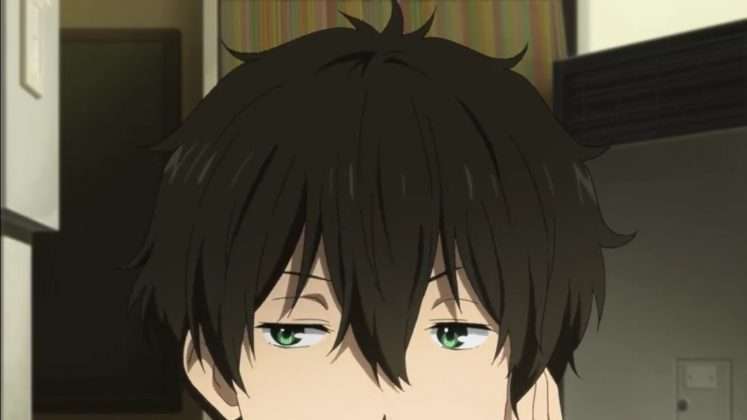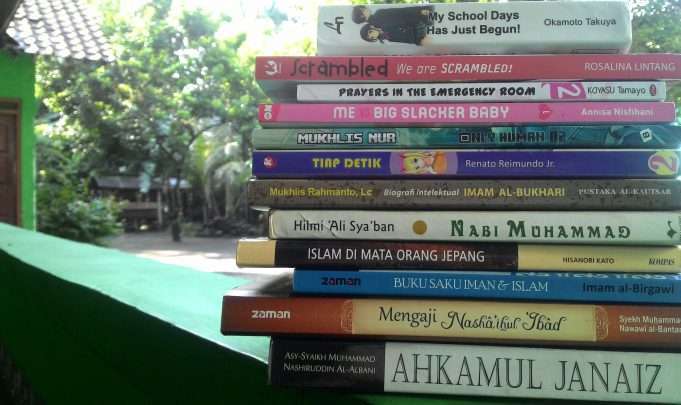How Do They Become Interested in Japanese Entertainment?
What I have described so far is just the tip of the iceberg of the existence of a large amount of Muslim otaku or “wibu syariah” in Indonesia. In light of this reality, what then draws their interest on these Japanese pop culture contents? These are some possible reasons that I have thought of:
1. Cheap entertaiment (at least in Indonesia)
It is a common knowledge that in Indonesia, watching anime has become a highly accessible entertaiment that anyone can enjoy, because it doesn’t require a great amount of money other than the cost of internet services. Indonesia-based fansubs has also grown since 2012, making it easy for people to obtain these contents, even though it isn’t exactly legal.
Manga are also available in large numbers legally from Indonesian publishers such as Elex Media and m&c!, and a typical Indonesian edition of a manga volume generally costs no more than US$ 2.
2. Exhausted by Islamic activities
Becoming a thoroughly devout muslim is not exactly easy, since Islam many rules, restrictions and practices that have to be observed regularly. The routine of religious activities can also leave someone exhausted, leading them to seek cheap entertaiment to rid of boredom, and that could be either through watching anime or reading manga. Anime can also show stories and activities that are out of ordinary for many Muslims.
3. A Close relationship with Eastern Culture
Anime are originally created in Japan, where elements of “eastern culture” such as strict norms of politeness and manners, often show themselves in the anime world. This can be a factor that makes Muslim viewers more easily accustomed to the contents in anime and manga, other than fanservice and ecchi contents that might be considered immoral. Japanese anime offer stories that feel ‘closer’ to us, compared to Hollywood films that, as some might say, are having to much ‘freedom’.
Is this thing allowed?

The Muslim otaku or “wibu syariah” is one example of how globalisation, brings together different cultures into contact and merge with local cultures. There are things that can be accepted as Muslims, but there are also things that are ruled out. After all, anime also often show sexual contents that religion forbid (the woman hair itself was forbidden to be shown in public and seeing that can be considered a sin in Islan). It is difficult to obey every single religious law, but for a Muslim who still wants to be faithful, they should not deny or refuse to acknowledge that these laws exist. Even if it is difficult to obey, perhaps it is better to accept oneself as a ‘less devout Muslim’.
The reason why I use the term ‘less devout’ myself is because if we define “wibu syariah” strictly as ‘someone who enjoys Japanese pop culture content only in the range permissible by sharia law’, this can’t be right. There are too many things in anime that clashes with certain regulations in Islam such as tashwir, music, sexual contents and many others. Setting aside the extensive debates regarding those laws (for tashwir, see for example this review of a comic book about the law of drawing living creatures) a Muslim must realize that they can not be a completely ‘devout Muslim’ if they still involved in this kind of entertaiment.
In the end, to be a Muslim otaku in any form is a choice that can not be forced upon. In Islam, the responsibilities for each person’s deeds is held up personally to God Almighty, who has given humans the free will to make the choice for themselves. The holy Qur’an told, and I quote “There shall be no compulsion in (the acceptence of) the religion. The right course has become clear from the wrong–” ( Al-Baqarah:256 ). Regardless of the interpretation of the meaning d the verse, it can be concluded that a human can choose to become a very devout Muslim, or a less-devout one. Whatever the choice, one must be committed for the responsibilities of making the choice.
The Indonesian Anime Times | Written by M Razif Dwi Kurniawan from KAORI Newsline | Translated by Eru Ds with editing by Halimun Muhammad
This article is the personal opinion of the writer and does not reflect the opinions and views of KAORI Nusantara and The Indonesian Anime Times.
KAORI provides an opportunity for readers to submit opinions about Japanese popular culture and Indonesian creative economy. Write your opinion in English or Indonesian for 500-1000 words and send it to [email protected].








